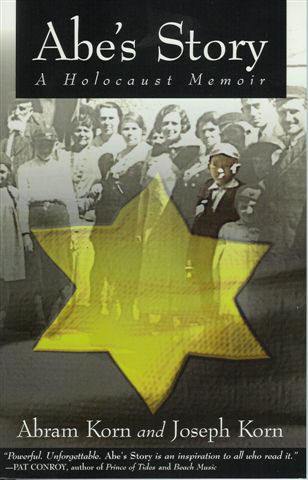Return to The Aftermath | Facts
I.G. Farben Embraces Nazi Anti-Semitism
Summary:
Farben purges Jewish management, takes over Austrian chemical industry through campaign of fear and intimidation:
“…As country after country collapsed in the face of Hitler’s `Operation Terror,’ I.G.’s embrace of the Nazis became progressively more passionate. As country after country fell to the Wehrmacht’s assault, I.G. played jackal to Hitler’s lion.
Despite Hitler’s apparent invincibility, I.G. continued to calculate the odds and prepare for all contingencies. The acquisitions, no matter how brutal, were inevitably accomplished with the color of legality, a charade designed to protect I.G.’s interests in the improbable event that Germany lost the war. But this veneer of lawfulness could not conceal the terror I.G.’s methods evoked in its victims. And those in I.G. who would challenge the wisdom of such a course were silenced not only by a fear of Nazi retribution but also by I.G.’s great success.
The invasion of Austria … marked the beginning of Hitler’s policy to move beyond the borders of Germany by force. I.G. was ready within days after the troops started to march. It presented the Nazi occupation officials with a memorandum entitled `New Order for the Greater Chemical Industry of Austria.’ Essentially, the `new order’ plan was a request for government permission for I.G. to take over Skoda Werke Wetzler, the largest chemical concern in Austria. I.G. made sure to clothe its plea with the rhetoric of German national interests. The erstwhile Jewish company was now ready to goose-step with Hitler. The absorption of the Austrian concern, I.G. promised, would aid in the pursuit of the aims of the four-year plan as well as promote the elimination of Jewish influence in Austrian industry. Skoda Werke Wetzler was dominated by the Jewish Rothschild, and I.G. made the most of this fact.
The Rothschilds were not naive. Even before the Anschluss, they had recognized I.G.’s intentions. Through the general manager of Skoda, Isador Pollack, they tried to thwart I.G.’s acquisitive plans. To this end, Pollack explored the possibility of merger with two other European chemical organizations, Montecatini of Italy and Aussiger Verein of Czechoslovakia. But I.G. proved too formidable, and the mergers were never seriously entertained by either the Czech or the Italian company.
Hitler’s move into Austria left terror in its wake, and the chemical industry was no exception. Immediately after the Anschluss, all the top Jewish personnel of Skoda were dismissed by government decree. I.G. filled the breach by supplying Aryan technicians. However, to protect the takeover against possible future legal challenges, I.G. entered into negotiations with Josef Joham, the personal representative of the Rothschilds. Joham, also a Jew and therefor personally vulnerable, was hardly in a position to oppose I.G.’s demands. These kept enlarging as the so-called negotiations proceeded. When necessary, I.G. was not reluctant to use the anti-Semitic threat to squeeze out the terms it considered suitable. After a series of annoying difficulties posed by the Nazi bureaucracy in Austria, I.G. finally in the fall of 1938 claimed Skoda as its own. By that time, Joham had fled the country but Pollack, not so fortunate, was literally stomped to death by Nazi Storm Troopers before he could make his escape.” (Borkin, 95-96)
TWC, VII, pp. 1404-1406, NI-4024
TWC, VII, p. 1393, NI-9289
TWC, VII, p.1406, NI-4024
TWC, VII, pp. 1399-1400, NI-3982; and pp. 1401-1403, NI-3981
TWC, VII, pp. 1414-1415, NI-9289
DuBois, Josiah, “The Devil’s Chemists,” Beacon Press, Boston, 1952, p. 92
Hilberg, Raul, “The Destruction of the European Jews,” Quadrangle Books, Chicago, 1961, p. 61; NI-10998, affidavit of Joham.
Abbreviations:
Published Nuremberg War Crimes Trials Records:
TWC: Trials of War Criminals Before the Nuremberg Military Tribunals, Under Control Council No. 10. (U.S. Government Printing Office, 1953) Documents in National Archives Collection, World War II Crimes Records (some of which have been included as exhibits in above publications, some of which are available only at the Archives):
NI: “Nuremberg, Industrialists”
Work Cited
Borkin, Joseph. The Crime and Punishment of I.G. Farben. New York: The Free Press, 1978, and London: Macmillan Publishing Company.
Return to The Aftermath | Facts



